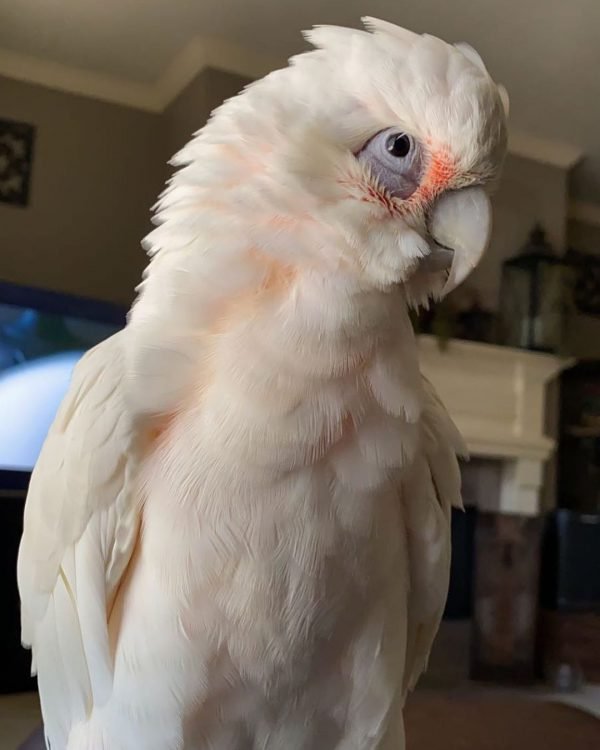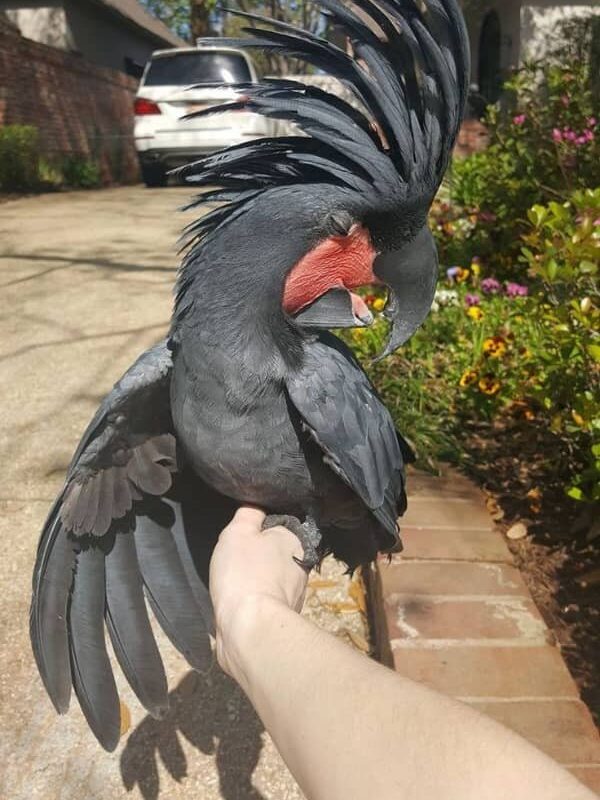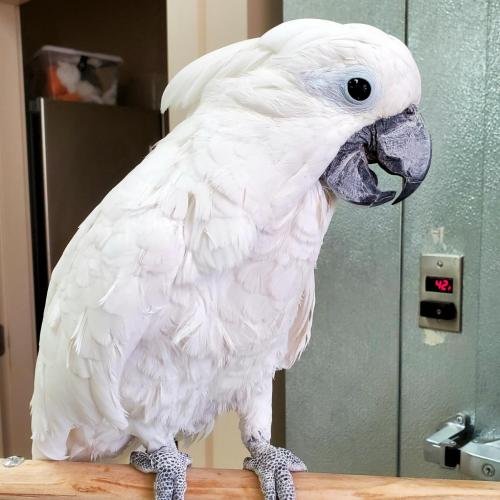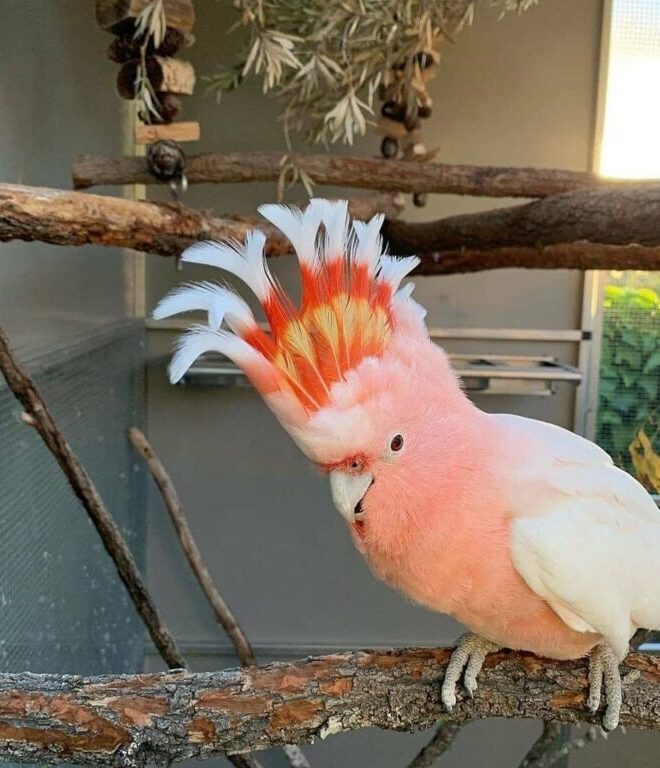Description
BARE-EYED COCKATOO COLORS
Bare-eyed cockatoos are primarily white with touches of salmon-pink on their faces. They have horn-colored beaks and bare, gray-blue patches around their eyes. Males and females are identical, though males are slightly larger in stature and also have slightly larger eye patches.
FEEDING THE BARE-EYED COCKATOO
Cockatoos are prone to weight gain, so they should be fed a diet low in fat—the fatty liver disease can result, otherwise. Offer your bare-eyed cockatoo a fresh vegetable mix that includes leafy green produce, as well as root vegetables. Fresh fruit is a welcome and healthy addition to their diet, as are nuts such as almonds and walnuts. A formulated pelleted diet should also be on hand and available to your cockatoo. Of course, fresh drinking water should be available at all times as well.
EXERCISE
Bare-eyed cockatoos, like all cockatoos, need plenty of exercise. If you want to keep this bird, make sure that you’re able to give it a minimum of 3 to 4 hours of supervised playtime outside of the cage each day. On top of needing a chance to exercise and stretch its wings, your bare-eyed cockatoo is a very social bird that needs daily time with its owners in order to thrive and remain happy.
Providing toys to these birds is very important, and teaching them that toys are a fun part of their lives will make a huge difference for both your bird and for you. A cockatoo needs to learn to play independently, and toys and activities that it can manage on its own will reinforce your bird’s independence, as well as giving you some much-needed time off. Wooden toys, as well as toys made of leather and sturdy hemp twine or plastic rope, will give the bird an outlet for using its substantial reserves of energy. Ladders and swings will also help to mentally engage your cockatoo and provide it with needed exercise.
COMMON HEALTH ISSUES
Cockatoos are highly susceptible to psittacosis, a disease caused by the bacteria Chlamydia psittacine. Symptoms include lethargy, discharge from the eyes, and respiratory problems. Your bird will require antibiotics if it contracts psittacosis.






Brandy –
He arrived healthy and alert, and within a day he was dancing to music.
Layne –
Beautiful feathers, great personality, and loves attention.
Fannie –
Love the bird, but I wish the updates during delivery were more frequent.
Tracy –
Our baby cockatoo is a total cuddlebug. So sweet and already bonded with the kids.
General –
Shipping was delayed by a day, but the parrot arrived in great condition.
Leanne –
Love the bird, but I wish the updates during delivery were more frequent.
Marcellus –
Very sweet parrot, but a little louder than we expected.